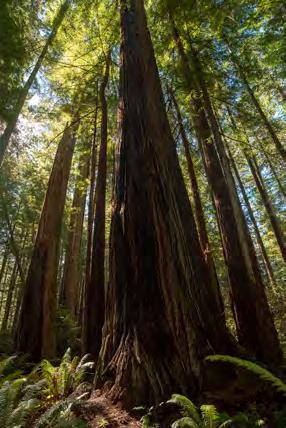
3 minute read
WELL AND GOOD
It’s safe to say that navigating apandemic is a new experience for all of us. COVID-19 has quite literally taken over our lives. As we adjust to our new normal by learning how to navigate self-isolation and social distancing, we are also trying to monitor our own health and the health of those around us. This requires considerable attention and as a result, Self-care in beautiful British Columbia could lead us to be hyper-aware of our surroundings, even a little paranoid. Did someone just sneeze?
Advertisement

Adjusting to social isolation, monitoring health, keeping up to date with infection tallies — all of this can create the perfect storm for anxiety, fear and overwhelm. Typically, we would process challenging times by turning to coping mechanisms, like visiting with friends, going to the gym or even focusing on work. But these options are generally no longer available. Removing these coping mechanisms, especially while navigating fear, can cause an increase in stress and anxiety that can have negative effects on our overall health.
Following social-distancing protocols is, of course, crucially important, but how do we restrict our lives without feeling like we’re living in stasis? Luckily, there is a way to engage in activities that will not only increase our mental and physical health but also respect social-distancing protocols. The answer is just outside the door. That’s right, it’s time to get into nature and beautiful British Columbia has enough natural space for everyone.
Spending time in nature has been shown to not only reduce stress but also improve immune, cardiovascular and respiratory function, all while providing emotional healing, decreased blood pressure, and improved sleep-wake cycles. Our forests, mountains and coastlines offer a seemingly endless variety of outdoor activities. Choose from walking, hiking, gardening, beach-combing — the list goes on and any of these activities allows for effective social distancing while also providing space for movement while absorbing valuable vitamin D, enjoying fresh air and giving the mind a chance to recharge.
Being active in nature also challenges the brain. Navigating new surroundings in a way that we aren’t fully adapted to is beneficial because it exercises parts of the brain that may be less active during typical, routine activities. For example, we use our prefrontal cortex for problem solving, and the cerebellum for movement. During outdoor activity, while on a hike for example, these parts of the brain are working hard to navigate terrain, adjust to inclines, balance over tree roots, etc. The brain is distracted by our surroundings and thus less likely to engage in anxious thoughts.
If being on a beach or in a forest feels too ambitious, simply being around nature can boost immune function and accelerate recovery from illness. Studies in Japan have shown that moving in nature in a style referred to as forest bathing actually increases the body’s natural killer (NK) cells, the ones that primarily fight illness. There is also evidence that simply smelling the aroma of a tree can increase the number of these cells in the body. NK cells work to contain viral infections while the body’s immune response creates cellsthat then work to clear the infection. These are good cells to have in abundance if you’re fighting off a virus.
Let’s not forget about sustenance. Our beautiful British Columbia coastline not only provides an abundance of outdoor activities but also an incredible variety of nutrient-rich foods. Salmon, halibut and albacore are all caught right here in the Pacific Northwest and they provide essential nutrients in the form of protein, iodine and various other vitamins and minerals. Most importantly, they are the perfect source of omega fatty acids and vitamin D.
We also have a large variety of shellfish, that are packed with excellent nutrients. The simple mussel, for example, contains vitamin B12, vitamin A, vitamin C and iron. In fact, most shellfish contain large amounts of cobalamin, also known as vitamin B12, which helps the body to metabolize the fatty acids found the fish mentioned above. Seafood chowder, anyone?
Seafood isn’t the only thing on offer in BC — our hard-working farm communities boast a wide variety of produce that is available almost year-round. Eating foods grown in BC ensures that they can be purchased freshly picked, which allows produce to maintain more flavour, nutrients and vitamins than foods being shipped in. In the spring you can find an abundance of in-season local produce such as apples, carrots, kale, beets, cauliflower, mushrooms, potatoes and radishes, to name a few.










